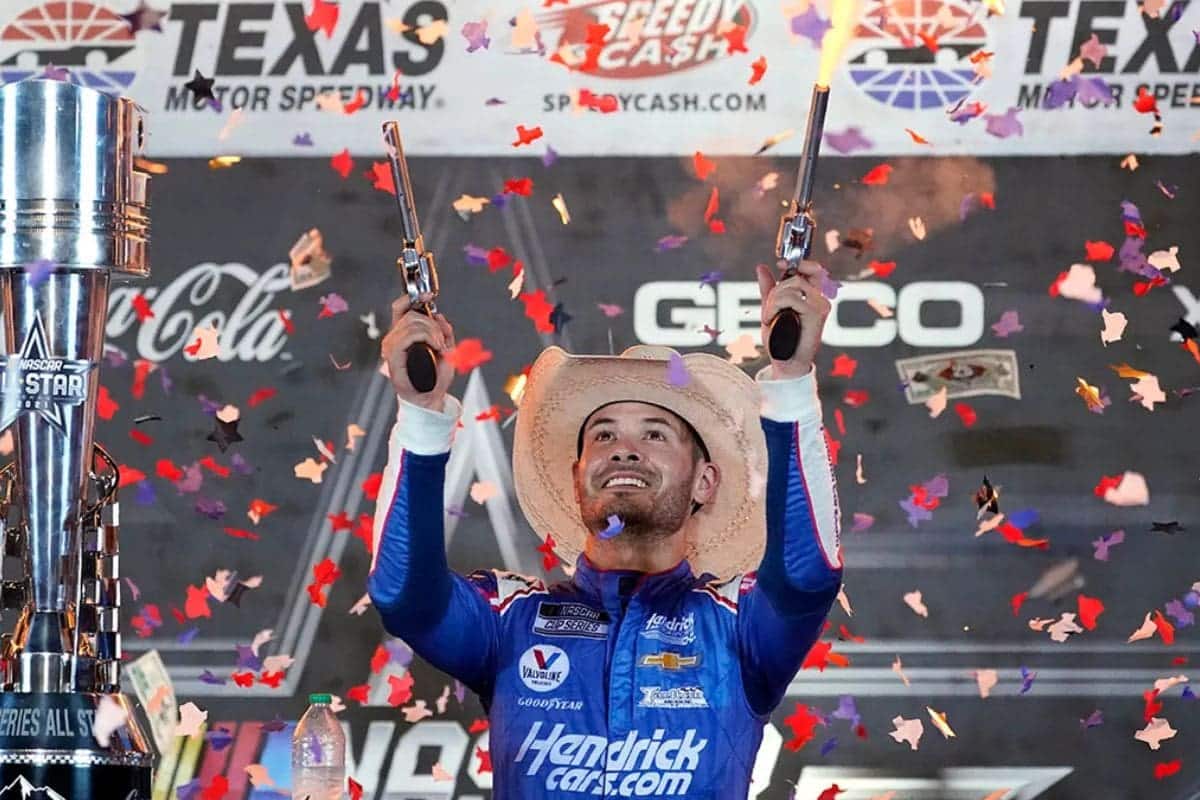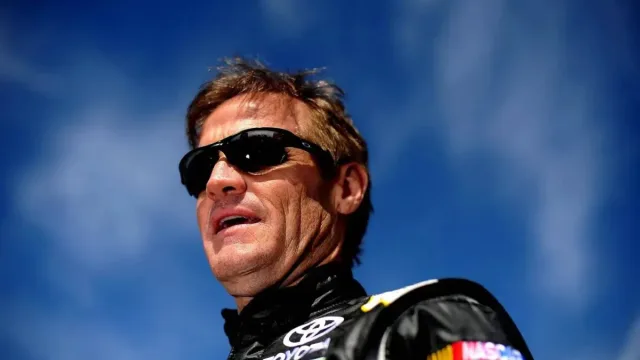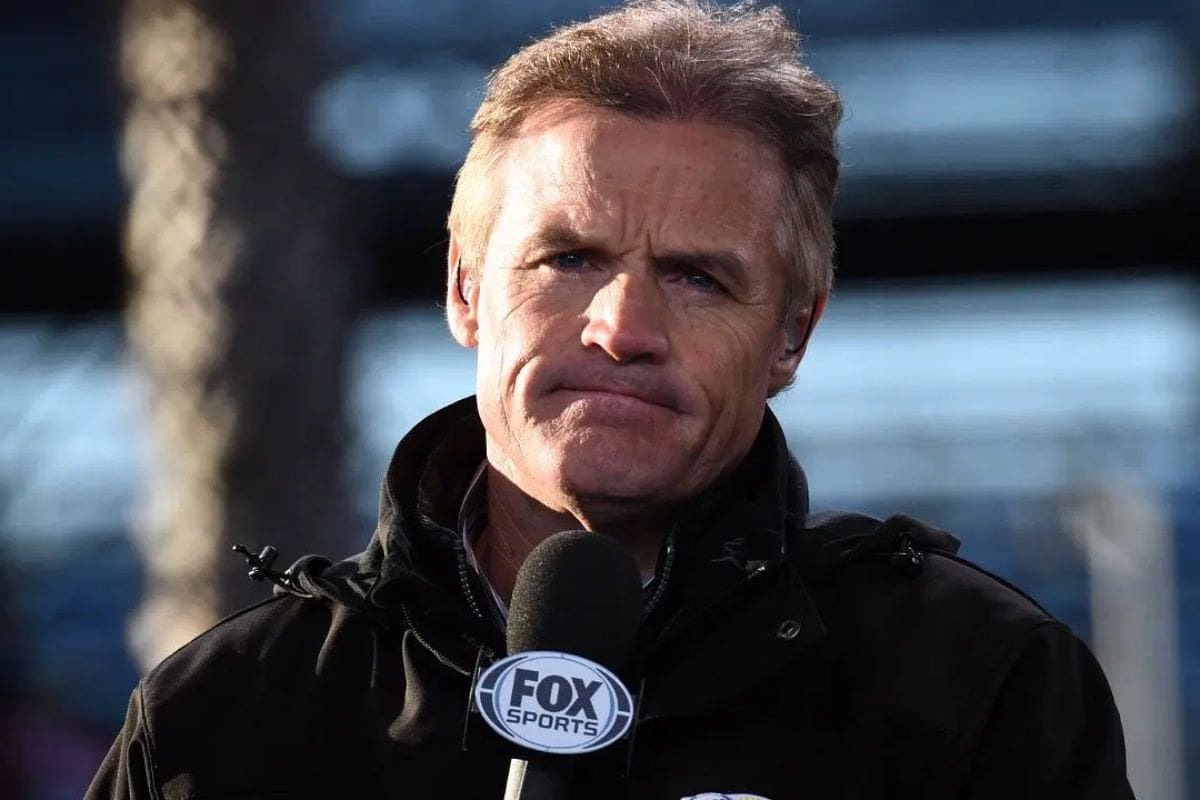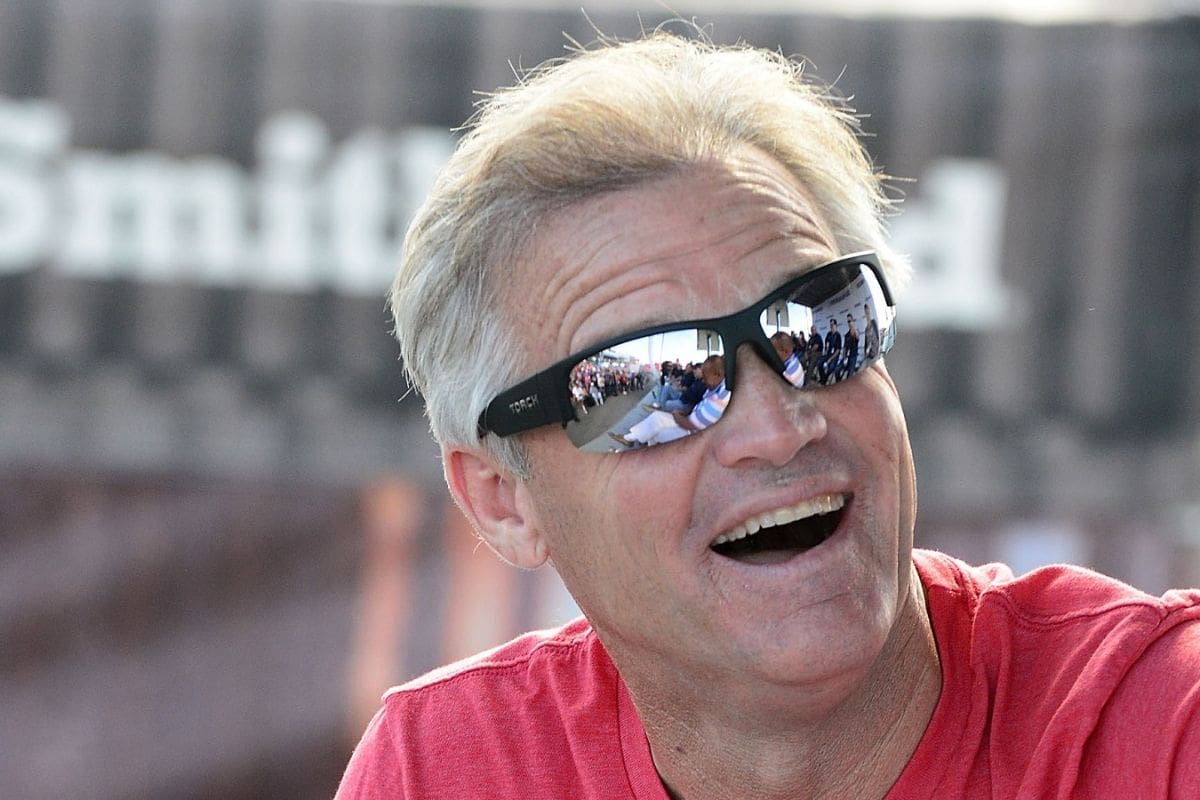Kenny Wallace Calls Out Negative NASCAR Fans: Kenny Wallace‘s recent remarks directed at negative NASCAR fans present a challenging inquiry into the motivations behind their viewership. By questioning the rationale for their discontent, Wallace invites a deeper examination of the relationship between fan expectations and the complexities of the sport. His call for a shift from criticism to constructive dialogue raises significant considerations about community and engagement within NASCAR. As fans reflect on their experiences, the implications of their responses could reshape the narrative surrounding the sport and its culture.
Key Highlights
- Kenny Wallace challenges negative fans to reflect on their motivations for watching NASCAR, questioning the reasons behind their discontent.
- He highlights the generational divide, noting that older fans may feel disillusioned compared to younger audiences.
- Wallace emphasizes the importance of live experiences in deepening appreciation for racing strategy and skill.
- He encourages constructive criticism of the sport rather than negativity, fostering positive engagement within the NASCAR community.
- Wallace promotes a discussion on race enjoyment, urging fans to reassess their expectations and how they engage with the sport.
Kyle Larson’s Dominance at Bristol
Kyle Larson’s recent performance at Bristol stands as a remarkable demonstration of his skill and the capabilities of the Hendrick Motorsports team. Leading an impressive 462 laps out of 500, Larson not only displayed his driving talent but also emphasized the team’s exceptional strategy and execution. This level of dominance is representative of Larson’s ability to maintain control under strain, maneuvering through the complexities of a race while ensuring that his No. 5 Chevy remained at the forefront.
The efficiency of Larson’s pit crew played a critical role in this victory, as they executed flawless stops that prevented any loss of positions. Such meticulous attention to detail is a hallmark of elite racing teams, highlighting the importance of teamwork in achieving success on the track.
While some fans may have found the race tedious due to Larson’s uncontested lead, it is vital to recognize the artistry involved in such a thorough performance. Dominating a race from start to finish is not merely a function of speed; it requires tactical insight, adaptability, and resilience.
Larson’s mastery of the Bristol track, combined with the steadfast support of his team, paints a picture of a driver who is not just participating in the sport but redefining it. As the motorsports community reflects on this race, Larson’s victory serves as a reminder of the skill and dedication required to excel at the highest levels of NASCAR, inviting both admiration and critical discourse among fans and analysts similarly.

Kenny Wallace’s Rant Against Disappointed Fans
Following the recent discussion surrounding Kyle Larson’s remarkable performance at Bristol, the topic of fan engagement and expectations within NASCAR has come to the forefront.
Kenny Wallace has voiced his discontent regarding the negative reactions from fans following a less chaotic elimination race. In a passionate YouTube rant, Wallace challenged those dissatisfied with the race, questioning their commitment to the sport. His words resonate deeply in a time when racing enthusiasts grapple with fluctuating excitement levels.
Wallace’s remarks highlight several critical issues concerning fan expectations:
- Inconsistency in Performance: Fans often anticipate high-octane excitement, yet races may vary in intensity.
- Nostalgia vs. Reality: Longtime fans may romanticize past races, leading to unrealistic comparisons.
- Cultural Shifts: The dynamics of NASCAR have evolved, and so have audience preferences.
- Emotional Investment: Disappointment can stem from a deep emotional connection to favorite drivers and teams.
- Expectations of Chaos: The desire for continuous thrills may overshadow appreciation for strategy and skill.
In his fervent call to action, Wallace articulated a sentiment that challenges fans to reflect on their motivations.
“Why do you watch?” he provocatively asked, emphasizing the irony of expressing dissatisfaction while remaining engaged.
“I call you people out. I call you people out! You’re too much. You’re a case for the couch, as my mama would say, meaning that you need to be put on the couch and talked to about life. You want too much. You’re mad that NASCAR is doing well, but yet you still watch. So, respond right here—why do you watch? Why do you watch? Because you watch everything!”-(KENNY WALLACE)
Wallace’s Response to NASCAR Fans’ Criticism
Confronting the wave of criticism from certain segments of the fanbase, Kenny Wallace passionately defended the integrity of NASCAR and its evolving landscape. In a pointed response to negativity permeating discussions around the sport, Wallace emphasized the paradox of fan engagement, suggesting that much of the discontent stems from a desire for drama and dissent. “Negativity sells—people like negativity,” he asserted, implying that some viewers tune in with the intent to critique rather than to appreciate the competition.
“I’m responding to the negative people right now because that’s what makes the show good. Negativity sells—people like negativity. They watch the race hoping they can talk negatively.”-(KENNY WALLACE)
Wallace specifically addressed the self-described “Legacy fans,” a term he dissected with skepticism. He highlighted a generational divide within the fanbase, where older fans, perhaps disillusioned by changes in the sport, have increasingly distanced themselves from current events. “You weren’t here,” he remarked, indicating that many of these critics are absent from the live experience that shapes a more intricate understanding of the sport.
“Respond right here—is that a clean version of fans that are old and angry? ‘We’re Legacy fans’ is a nice word, though; I’ll give it to you.”
“legacy”-(FANS’ REACTION)
“You weren’t here. I do not agree with you, and just to irritate you a little bit—I’m not going to change my mind. Ooh, that pisses you off, huh? Not going to change my mind.”-(KENNY WALLACE replied)
His unapologetic stance—“I’m not going to change my mind”—not only signals a rejection of the prevailing pessimism but also reinforces his commitment to NASCAR‘s present and future. By challenging the narrative of discontent, Wallace invites fans to reassess their motivations for watching.
This provocative dialogue not only sheds light on the inherent complexities of fandom but also calls into question the responsibilities of viewers in fostering a supportive community. In a rapidly evolving NASCAR landscape, Wallace’s remarks serve as a clarion call for a more constructive engagement with the sport.
Wallace’s Justification for the Race’s Success
The electric atmosphere of a packed racetrack serves as a powerful demonstration to the appeal of NASCAR, and Kenny Wallace harnessed this energy to justify the recent race’s success. While acknowledging that it may not have been the best race in history, Wallace emphasized the significance of the turnout, stating, “Wherever there’s 90,000 people, something must be going on!” This assertion highlights a fundamental truth in sports: attendance often correlates with excitement and engagement.
“It wasn’t the best race of all time, but it was a great race. It was a good time. And how can you tell it was a good time? Wherever there’s—oh, that was a cocky look—wherever there’s 90,000 people, something must be going on!”-(KENNY WALLACE)
In his defense, Wallace pointed to several key indicators that highlight the race’s success:
- Robust Attendance: A crowd of 90,000 fans signifies strong interest and enthusiasm for the event.
- Community Engagement: Large gatherings foster a sense of community among fans, enhancing the comprehensive experience.
- Diverse Fanbase: The presence of varied demographics demonstrates NASCAR’s broad appeal, attracting fans from different backgrounds.
- Increased Sponsorship: High attendance often leads to more sponsorships, reflecting confidence in the sport’s profitability.
- Emotional Connection: The palpable excitement among fans creates lasting memories, reinforcing loyalty to the sport.
In a world where opinions can be divisive, it’s crucial to recognize that the heart of NASCAR thrives in the shared joy and fellowship of its passionate fanbase.
What Made the Bristol Race Interesting
Bristol delivered an exhilarating race that captivated fans with a blend of high-stakes drama and unexpected twists. While Kyle Larson’s dominance was a focal point, it was the unfolding dynamics among other competitors that truly enriched the spectacle.
Denny Hamlin’s tactical fourth-place finish not only secured his playoff position but also shows the resilience required in the face of adversity, elevating him from a precarious P13 to a more secure sixth in the standings.
Conversely, the misfortunes of Harrison Burton, who suffered a power steering failure, served as a vivid reminder of the thin line between victory and disaster in NASCAR. His retirement not only eliminated him from the playoffs but also emphasized the challenges that aspiring drivers face.
Likewise, Martin Truex Jr.’s P24 finish, compounded by a pit penalty for speeding, exemplified how split-second decisions can derail a season, resulting in his elimination from competition.
The race also highlighted the considerable impact of team performance, with Hendrick Motorsports emerging as notable victors. Larson’s impressive results propelled him to the top of the playoff grid, displacing Ryan Blaney, who despite a solid sixth-place finish, could not match Larson’s accumulation of stage and race points.
Kenny Wallace’s question, “Was the race boring?” invites fans to reflect on their perceptions. The thrilling unpredictability of the Bristol race demonstrates that excitement is indeed subjective, shaped by the narratives that unfold on the track.
“Was the race boring?”
“That’s in the eye of the beholder.”-(KENNY WALLACE)
News in Brief: Kenny Wallace Calls Out Negative NASCAR Fans
Kenny Wallace’s challenge to negative NASCAR fans serves as a crucial moment for self-observation within the racing community. By questioning the motivations behind fan engagement, Wallace advocates for a more detailed understanding of the sport’s complexities. This call for constructive dialogue fosters an environment where diverse perspectives can coexist, ultimately enriching the fan experience. Emphasizing appreciation for the intricacies of racing may cultivate a more supportive culture, enhancing the general engagement in NASCAR.
ALSO READ: Why NASCAR’s New Generation Is Guarding Their Image: Kenny Wallace Explains


